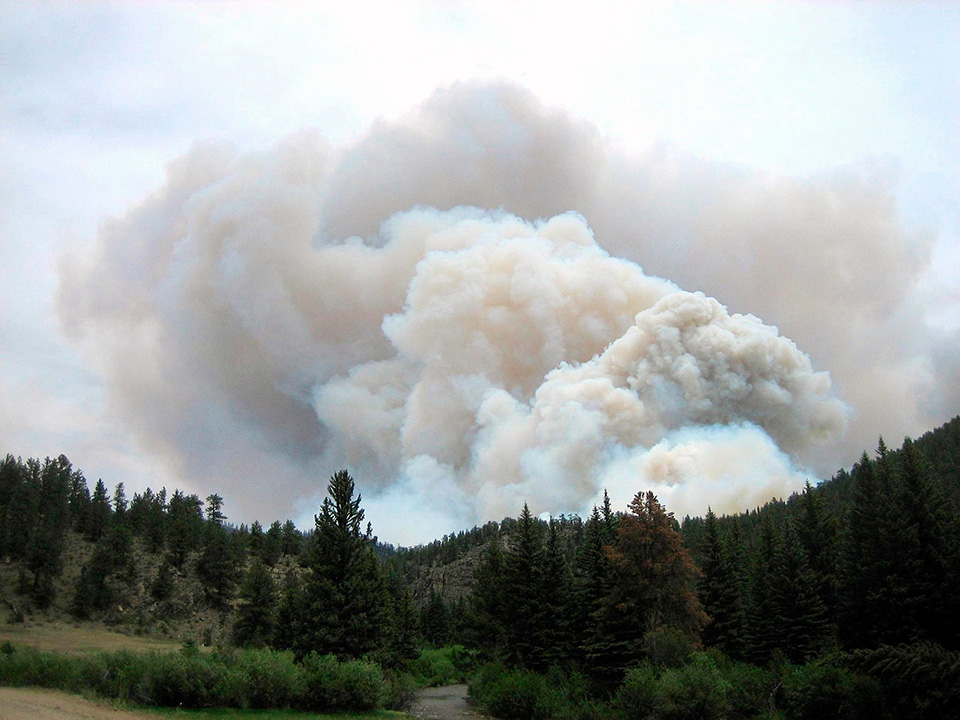Climate change has driven countries and organisations worldwide to search for solutions to help mitigate or prevent its effects. While forests are suffering, they are also crucial to reducing emissions, as they are the most critical earth’s carbon sinks: they sequester carbon by capturing CO2 from the atmosphere and transforming it into biomass.
However, this process is threatened by the increase in natural disasters, now more frequent due to the current climate emergency. In this context, the Information and Communication Technologies against Climate Change (ICTvsCC) group of the ITACA institute of the UPV (Universitat Politècnica de València) is coordinating INFORMA, the major European forestry research project in the new Horizon Europe programme to improve forest management in this context.
14 partners, 8 EU countries and 5 regions
The project, which has a total budget of €5.3 million and 14 partners from 8 EU countries, has a duration of four years. Its main objective is to develop and implement the best sustainable forest management practices in the five most representative biogeographical regions across Europe (Atlantic, Mediterranean, Continental, Alpine and Boreal) and under future climate change scenarios to preserve carbon sinks and promote carbon sequestration while conserving their biodiversity and renewable natural resources.
In addition, INFORMA also aims to contribute with scientific rigour to the methodologies of quantification, monitoring, review and verification of existing carbon offset market instruments in Europe, especially in sustainable forest management actions in Mediterranean ecosystems. In Spain, carbon compensation mechanisms are the primary tool for payment for environmental services today, as they already have demand (sectors and companies with diffuse emissions), supply (public and private forest owners) and regulatory mechanisms, such as the Carbon Footprint Registry of the Spanish Ministry of Ecological Transition and Demographic Challenge.
Forest fires, the main threat
“In our country, the main threat to the preservation of ecosystems and carbon stocks is forest fires, as has become evident after the fires that occurred this summer in the Valencian Region. This type of disturbance is the main field of research in the pilot areas in the Mediterranean region, where the project will analyse the interactions between the current state of the forest, its sustainable management alternatives and the climate. In this way, the project will allow the implementation of best practices for adaptive management to climate change in the different types of Mediterranean forest ecosystems, but also the mitigation by forest bioeconomy, i.e. the optimisation of carbon sequestration in managed forests and the industrial transformation and consumption of the main forest products (wood, cork, biomass, resins, etc.) as substitutes for materials and products coming from fossil or non-renewable sources with a high impact on greenhouse gas emissions” says José-Vicente Oliver, director of the ICTvsCC-ITACA group at the UPV and general coordinator of the INFORMA project.
Moreover, the project will contribute directly with its results to the development of the European Forestry Strategy 2030, currently being negotiated by the EU Commission, as well as to the MOSAIC Strategy of the General Directorate of Forest Fire Prevention of the Regional Ministry of Agriculture, Rural Development, Climate Emergency and Ecological Transition of the Valencian Regional Government (GV) and the recently announced Forestry Cooperation Fund by the Presidency of the GV for the coming years, whose objectives are the prevention and mitigation of the effects of forest fires on forest ecosystems and society, through the sustainable integrated management of agroforestry territory.
Source: UPV’s Information Office

Funded by the European Union. Views and opinions expressed are however those of the author(s) only and do not necessarily reflect those of the European Union or the European Research Executive Agency. Neither the European Union nor the granting authority can be held responsible for them.



